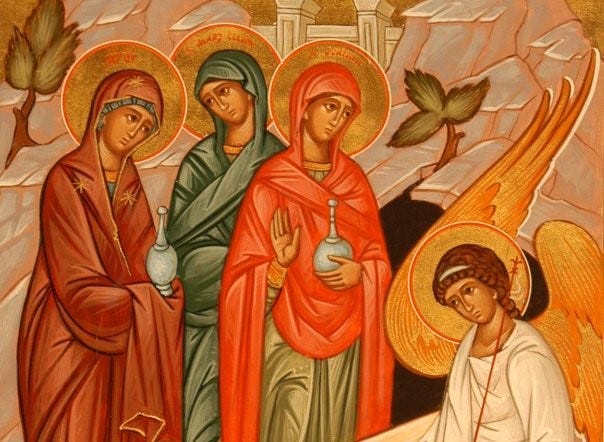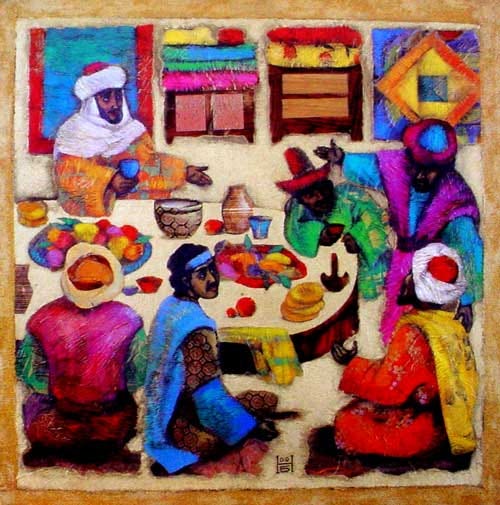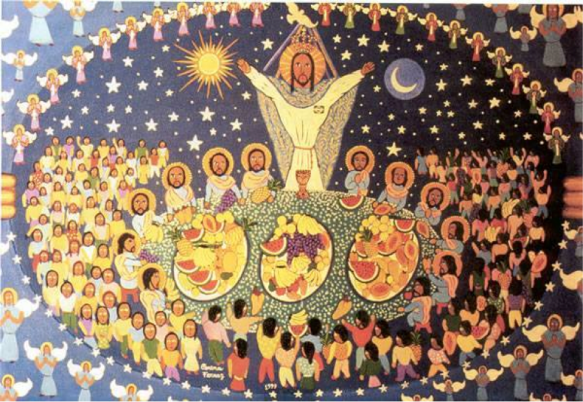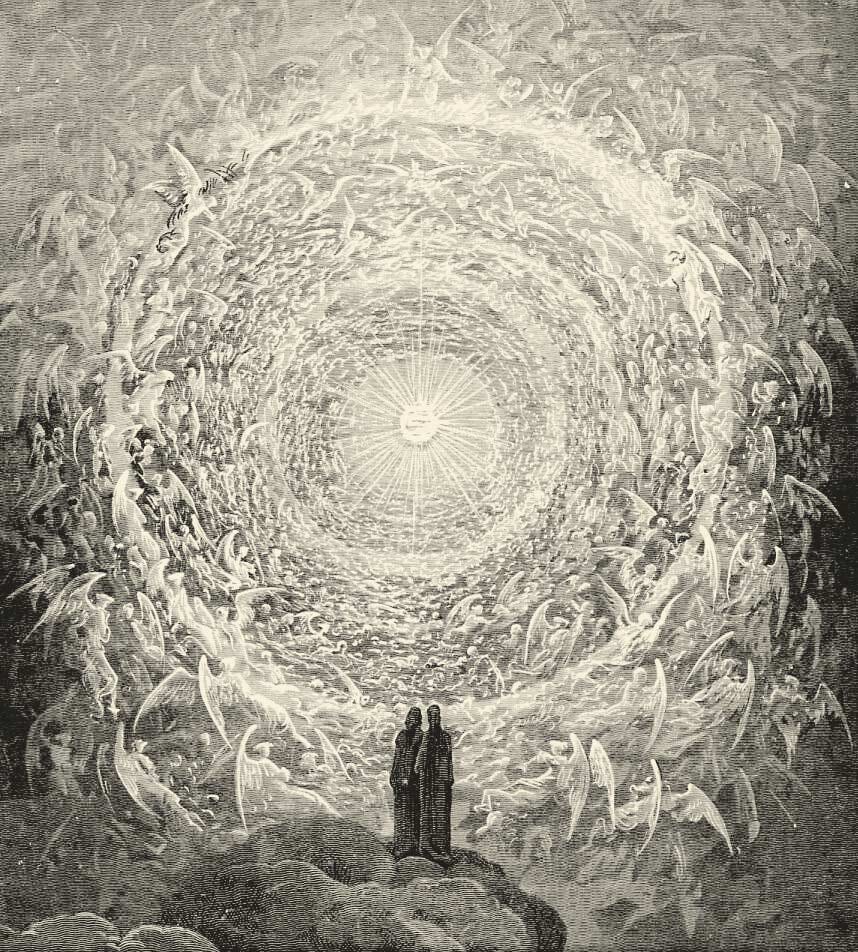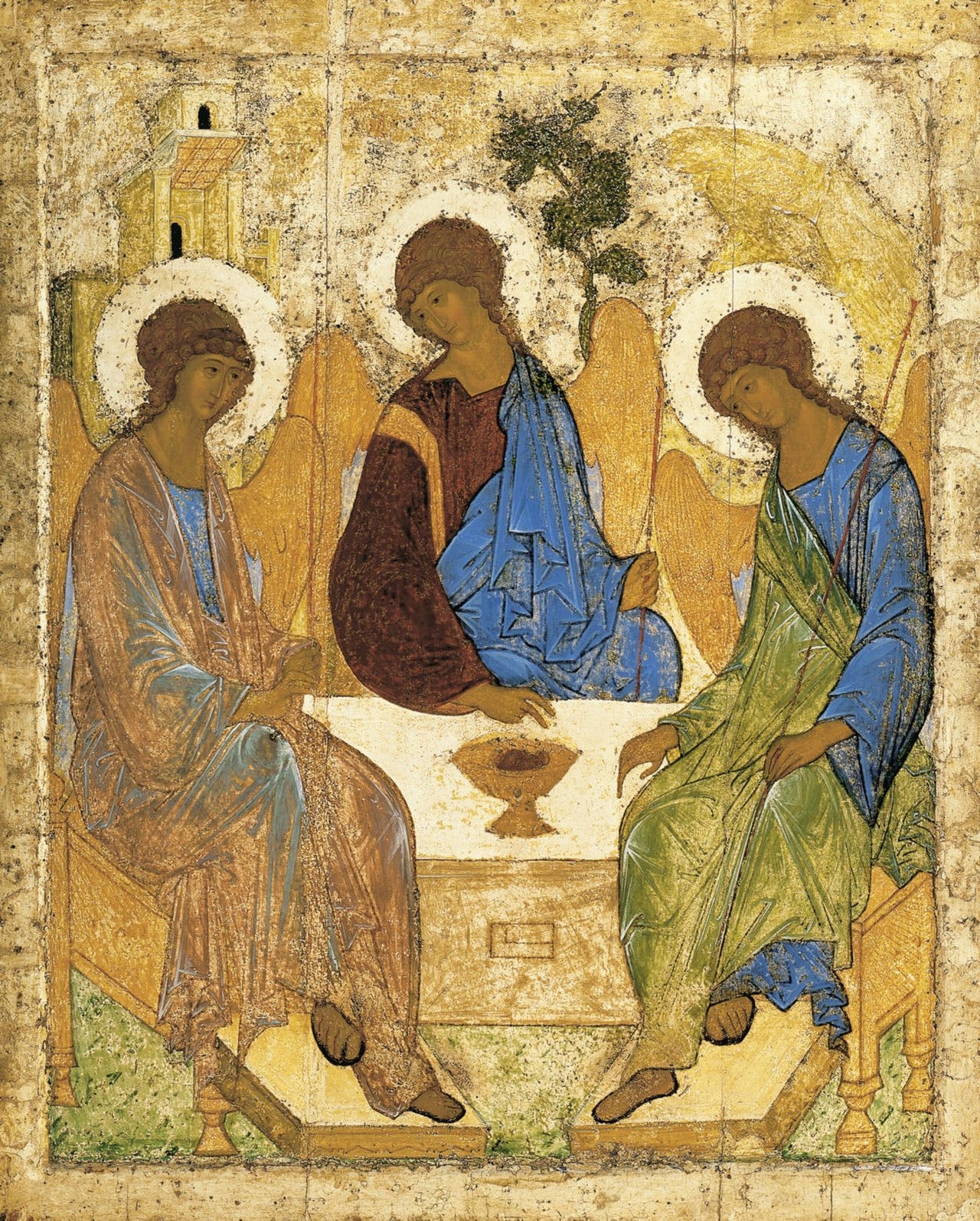This past Sunday at St. Alban’s Episcopal Church, I gave a sermon on Luke 12:12-15, Jesus’ very challenging command to hosts of banquets and dinner parties. The lectionary reading ends at v. 14, but taking my cue from the following verse — “Blessed is the one who eats bread in the kingdom of God” — I explore how obeying Jesus’ command to invite the poor, the crippled, the lame, and the blind to our banquets is a way of sharing in the life of God’s kingdom.
I’d love to know what you make of this passage and of my reflections on it!
Luke among all the evangelists emphasizes Jesus’ mission “to bring good news to the poor” (Luke 4:18), and yet it’s Luke who goes out of his way to show how Jesus intersected the lives of the wealthy. Luke is not the only one to tell of the rich young ruler who asked Jesus about the good life (Luke 18:18-30 and parallels), or the wealthy centurion who sought healing for his servant (Luke 7:1-10 and parallels). But Luke alone mentions the wealthy women who supported Jesus’ ministry out of their own pockets (Luke 8:3), and Luke alone tells us this story of a Sabbath dinner party, hosted by a wealthy Pharisee (Luke 14:1-24).
For the kingdom that Jesus proclaims may take root even at the banquets of the comfortable.
But where Jesus is welcomed, nothing remains the same. Certainly his presence at this banquet proved disruptive and embarrassing. How would you feel if you invited the popular new rabbi into your home, only to have him lecture your guests about their choice of seat and then criticize you for your guest list!
I’d like us to focus on Jesus’ provocative instructions to hosts. These words are rarely preached on and, it must be said, even more rarely put into practice. “When you give a luncheon or a dinner, do not invite your friends or your brothers and sisters or your relatives or rich neighbors, in case they may invite you in return, and you would be repaid. But when you give a banquet, invite the poor, the crippled, the lame, and the blind. And you will be blessed because they cannot repay you, for you will be repaid at the resurrection of the righteous” (Luke 14:12-14).
Our lectionary stops there, but the next verse is actually the key to what Jesus is saying here. “One of the dinner guests, on hearing this, said to him, ‘Blessed is the one who eats bread in the kingdom of God!’” (v. 15) In response, Jesus tells a parable about the great heavenly banquet. When the invited guests one by one beg off to attend to their worldly affairs, the divine Host commands his servant to invite “the poor, the crippled, the lame, and the blind” (v. 21) — the same people that Jesus commands us to invite to our dinner parties.
For a dinner party is not just a dinner party: it can and should be a foretaste of the great heavenly banquet.
I. A Difficult Teaching
This command to hosts is difficult — not because it’s hard to understand, but because it’s so easy. The only difficulty is to hear the command with its full force. “When you give a banquet, invite the poor, the crippled, the lame, and the blind.” But perhaps this doesn’t apply to the kinds of parties you and I might host? Perhaps Jesus is talking about a particular kind of ancient Greek dinner party, or a Jewish sabbath meal? No: Jesus uses three different words (“luncheon” and “dinner” in v. 12, “banquet” in v. 13) to leave no doubt: this applies whenever you invite others for a feast.
“When you give a banquet, invite the poor, the crippled, the lame, and the blind.” But perhaps “the poor” includes anyone who shares your scorn for “the elites”? Or perhaps you could invite anyone who identifies as a member of a historically oppressed group? Perhaps Jesus is saying: have inclusive parties with lots of diversity! No: Jesus is very precise about who you should invite: those who cannot invite you back in return, those who cannot repay you, those whose presence at your table brings no financial benefit or social capital, who neither advance your political goals nor extend your social media presence: the destitute and the helpless.
This command is difficult, not because of its words but because of our hearts. How often we choose our companions with an eye towards political advancement or the next promotion or a wider online reach. Even when we are not so nakedly instrumental, do we not want to enjoy the reciprocity, the give-and-take of friendship? Do we not want the security of family life, with its bonds of mutual loyalty? To give without receiving anything in return is exhausting, draining, infuriating. When I reflect on my own life, it’s hard to think of many occasions when I’ve done what Jesus is asking here. This is a difficult command.
Now if it seems too difficult for you, Jesus does hint at another way to begin to put these things into practice — but I warn you, you may not like it. Notice that the issue here is not that we invite friends, family, or the rich per se. The issue is that they might “invite you in return, and you would be repaid” (Luke 14:12). So if you want to learn the way of Jesus, I have good news for you: sometimes you will invite such people into your home, and they will gladly eat your food and drink your wine — and then they will give nothing in return, not even a thank you.
How angry we can be when this happens, how indignant! But our anger is a confession that we have not given freely; rather, we have given with the expectation of receiving something in return—which is not really giving at all. Through the ingratitude of others, we stumble into an opportunity to practice the way of the kingdom and receive some of those heavenly rewards Jesus promises.
II. The Rewards of the Kingdom
This is a difficult command, and I think Jesus means for us to put it into practice. I’ve no authority to get you and I off the hook! All the same, there is something strange about this passage, which perhaps can help us to see this command in a rather different light. What is strange is the way Jesus insists on talking about rewards. Do this, Jesus says, and God will repay you “at the resurrection of the righteous.” It’s presumably with a view to this future reward that a guest responds, “Blessed is the one who eats bread in the kingdom of God.” If you bless the destitute and the helpless today, then one day you will be blessed in the kingdom of God.
But Jesus has been criticizing guests and hosts for using other people as means towards some worldly end. Surely our problem is the whole mindset that looks at others as something we can use to win rewards for ourselves. By promising rewards in the kingdom of God, it seems that Jesus is only asking us to delay gratification. Refuse the meager rewards of today for the great rewards of tomorrow. But we might have expected him to say: don’t look for reward in welcoming the helpless at all. Just welcome them, love them, feast with them.
But what is the kingdom of God? Surely it is a domain in which God is fully given and fully enjoyed, where “God’s dwelling is with his people” (cf. Ez. 37:27, Rev. 21:3) where “God is all in all” (1 Cor. 15:28). Surely the kingdom of God includes the “resurrection of the righteous,” a new life beyond the reach of death in which human beings are so fully transfigured by God’s fullness that there is no pride or envy, cruelty or oppression, lust or bitterness, but each loves every other, as we now love ourselves.
Of course we also imagine God’s kingdom as a place full of created blessings. The prophets speak of fig trees, thriving cities, beautiful garments, and lavish feasts, yes especially feasts! Isaiah envisions a day when the Lord will “make for all peoples a feast of rich food, a feast of well-aged wines, of rich food filled with marrow” (Isaiah 25:6) But this feast is so rich and plentiful, Isaiah says, because God will destroy “the shroud that is cast over all peoples,” “swallow up death forever,” and “wipe away the tears from all faces” (Isaiah 25:7-8).
This is the great feast that Jesus celebrated throughout his earthly ministry. To the chagrin of his enemies, he “came eating and drinking” (Luke 7:34) with anyone who would have him, but especially the poor, the crippled, the lame, the blind, those who had nothing to offer but themselves and their own needs.
It’s quite right to imagine feasting and material abundance in the kingdom of God! But even in that kingdom, the worldly wisdom of Proverbs remains true: “Better a meal of vegetables where love is than the fattened calf with hatred” (Prov. 15:17). The love of God and the love of our neighbors in God utterly surpass any other good. There is feasting in God’s kingdom — but it is the sort of feasting that inflames our love for our neighbors and kindles our love for God.
To enjoy the rewards of God’s kingdom, our desires must be transformed. We must learn to love our neighbors more than the fattened calf, more than money and “likes” and advancement and security. By the time we eat bread in the kingdom of God, the rewards for which we hope, our very notion of “reward,” will be utterly transformed.
The reward for loving your neighbor is — your neighbor. The reward for seeking the kingdom of God is — God.
III. Blessed is the one who eats bread in the kingdom of God.
And the more our desires are transformed, the more we can see and enjoy God’s kingdom breaking in even now. As this happens, this very difficult command of Jesus may begin to seem light, even a glad and joyful thing.
We call our stories about Jesus gospels, “good news,” because fundamentally they are not about God’s demand that we bring his kingdom, but about the way God himself, in Christ, inaugurates his kingdom here on earth. Wherever Jesus is, there is the kingdom of God. And “blessed is the one who eats bread in the kingdom of God” — blessed is the one who eats with Jesus, if only he can recognize God’s kingdom in him.
We can no longer dine with the earthly Jesus; but we can feast in the presence of the risen Christ. Wherever the Spirit of Jesus is, there is the kingdom of God.
Christ is present among us as the true host of the kingdom feast. It’s Christ who invites the poor, the crippled, the lame, and the blind—along with all who are willing to feast with them in spirit. We can dine with Christ when we come to him in poverty of spirit, with broken hearts, knowing how lame is our will and blind our understanding. “Blessed is the one who eats bread in the kingdom of God” — blessed is the one who receives God’s gifts in poverty of spirit, for there is the kingdom of God, there we dine at Christ’s own table.
Christ is the host of the heavenly banquet; but he is also our guest. This exalted king humbles himself and identifies himself with “the least of these” for what we do to them we do to Christ (Matt. 25:40). Each of us bears the image of God; but the destitute and the helpless uniquely bear the image of God’s kingdom and impart the presence of its king. “Blessed is the one who eats bread in the kingdom of God” — blessed is the one who feasts with the destitute and the helpless, for there is the kingdom of God, there we welcome Christ himself to our table.
Christ is our true host and our honored guest; but Christ is also the very food that we eat. He is the bread of heaven that nourishes our souls, the well-aged wine that gladdens our hearts. By his Spirit, Christ shares with us the life and character of his kingdom. He gives us his own poverty of spirit so that we can respond to his invitation. He gives us his own strength to welcome and feast with the destitute and helpless. “Blessed is the one who eats bread in the kingdom of God” — blessed is the one who receives the Spirit of Christ, for there is the kingdom of God, there we are nourished by Christ’s own life.
And all of this can happen here and how! Here and now we are gathered to celebrate the feast of the kingdom here on earth. At this table, Christ is our host, extending God’s welcome to all who will receive his gifts with humility and contrition. At this table, Christ is our guest, for we are members of Christ’s body, speaking peace to one another and extending God’s welcome to the destitute and the helpless. And at this table, Christ is the very food of our feast. This simple bread will become for us the body of Christ, the bread of heaven; this ordinary wine will become the blood of Christ, the cup of salvation. Through these gifts the kingdom of God comes so near that we can receive its very life and power. “Blessed is the one who eats bread in the kingdom of God” — blessed is the one who comes to this very table, for here is the kingdom of God. Amen.


